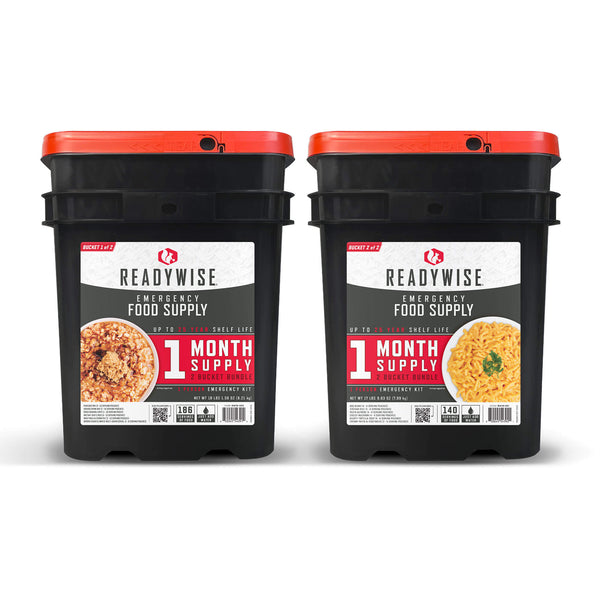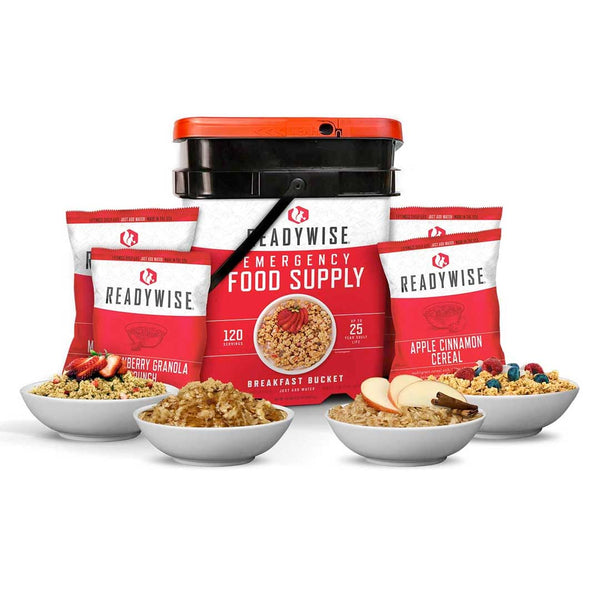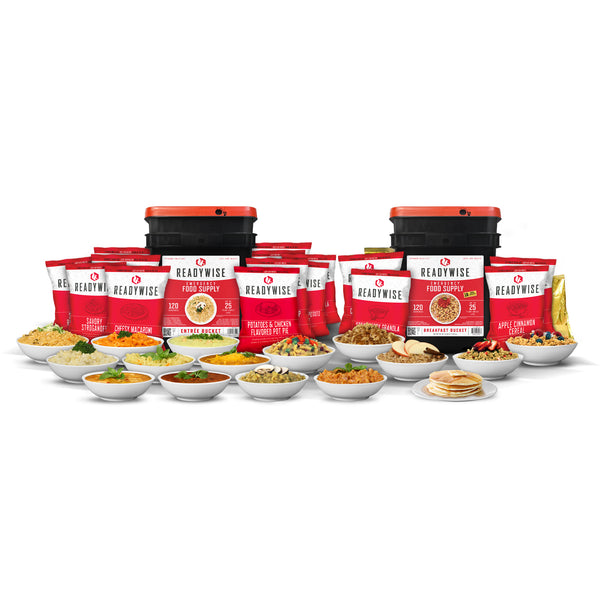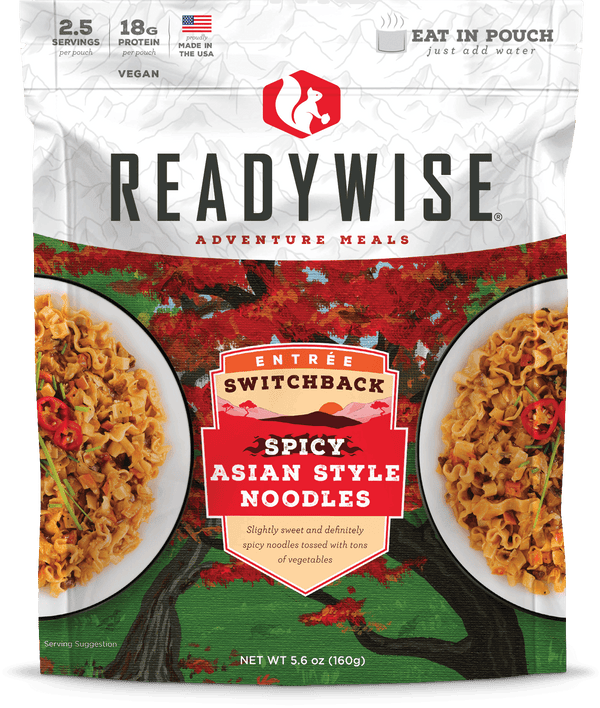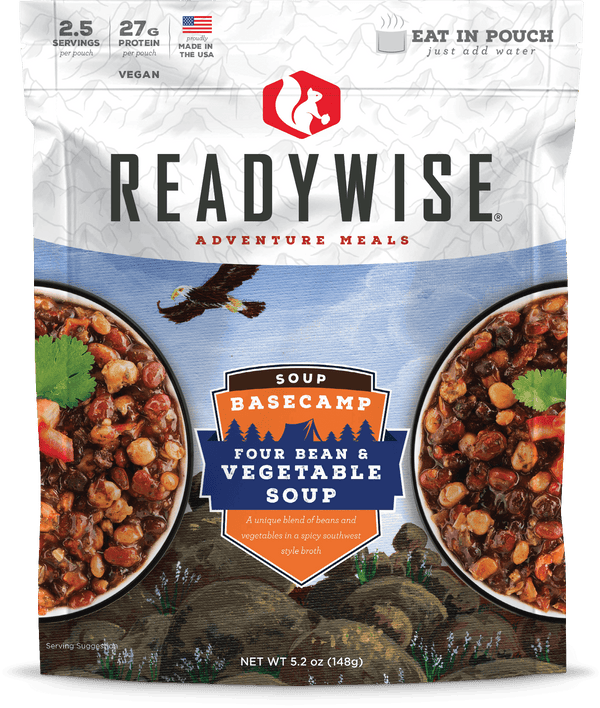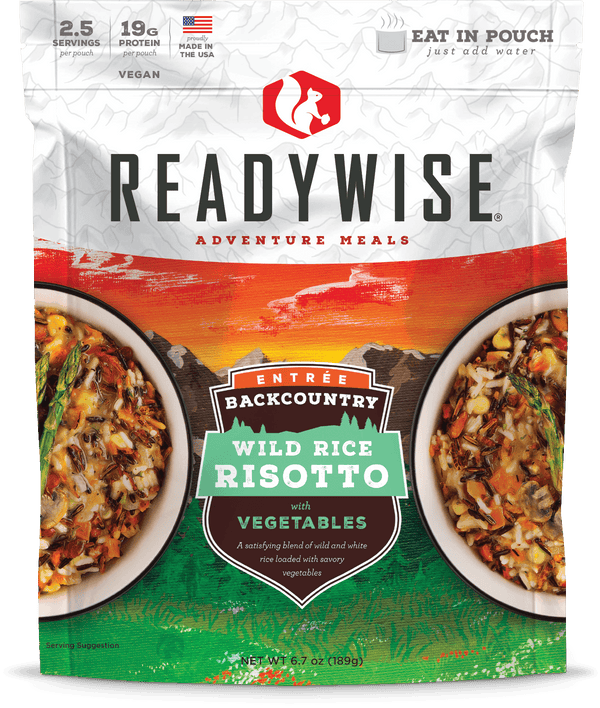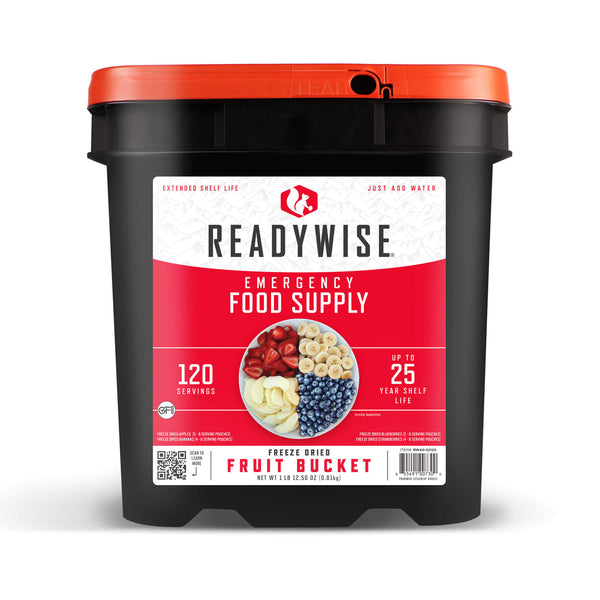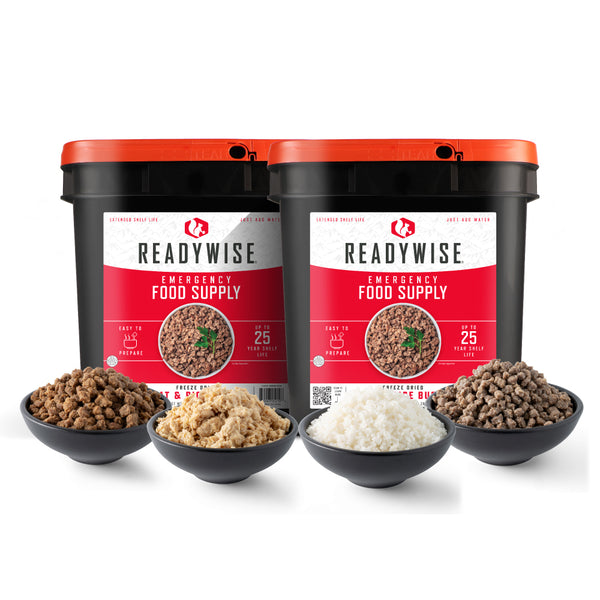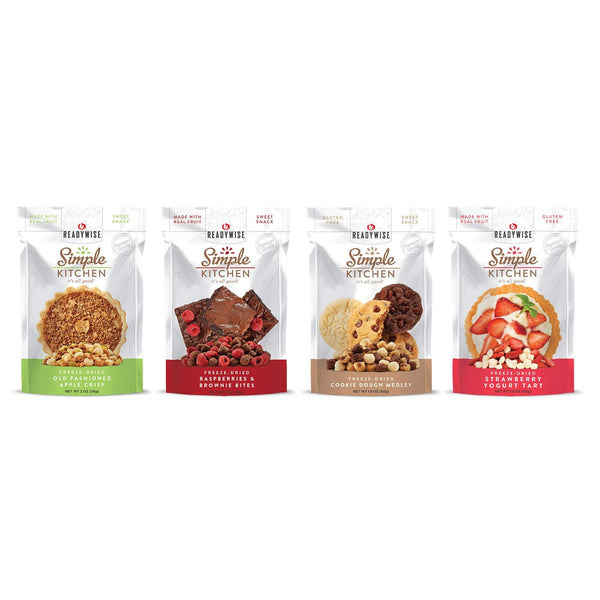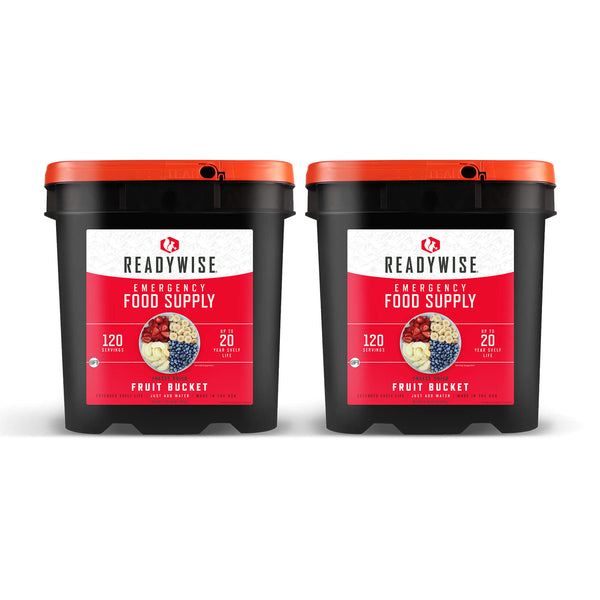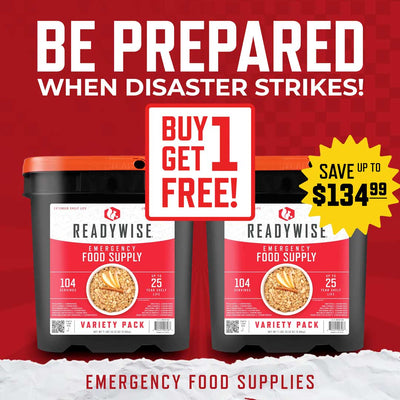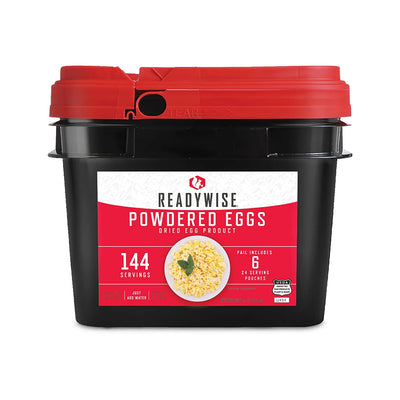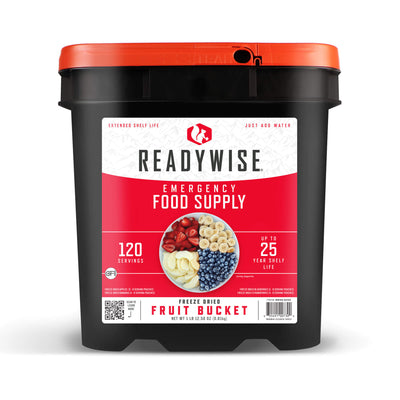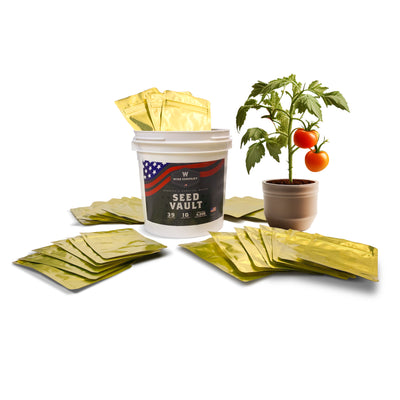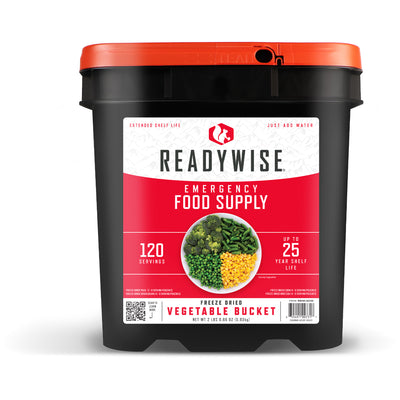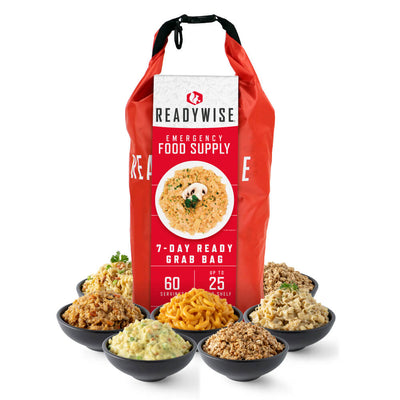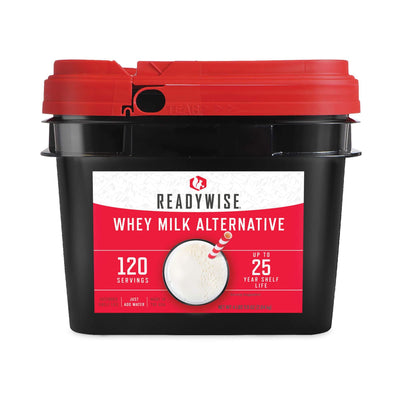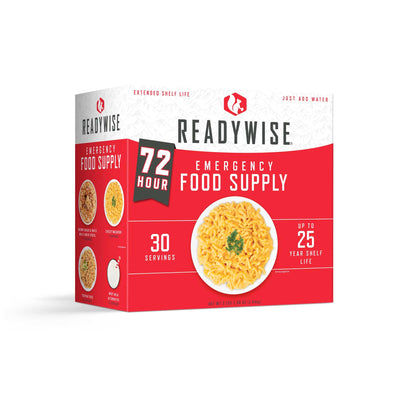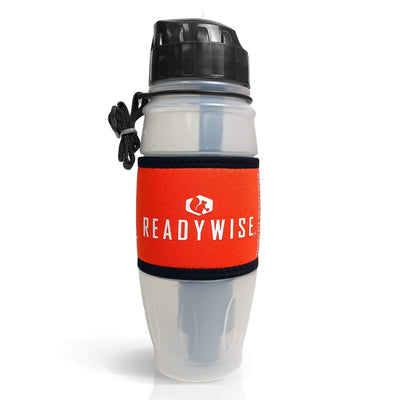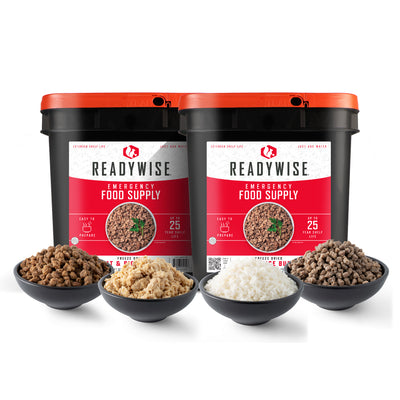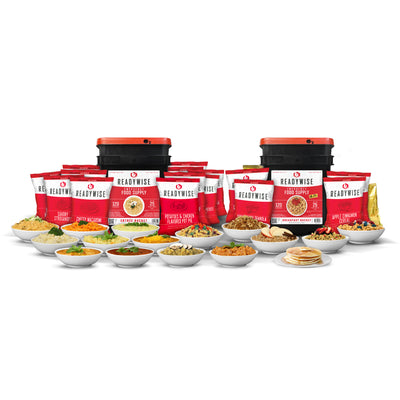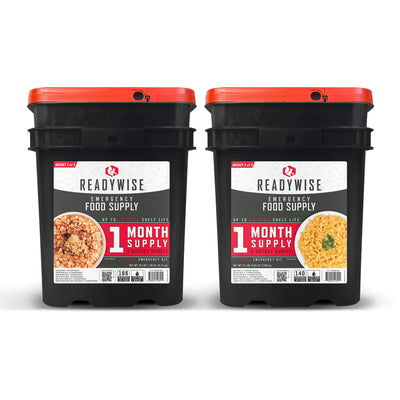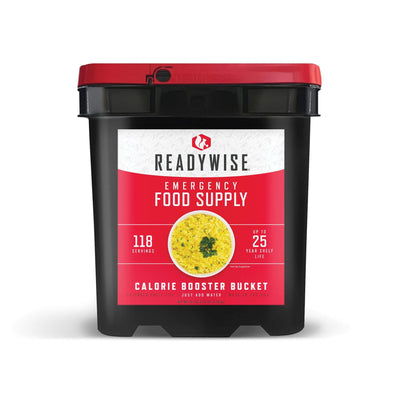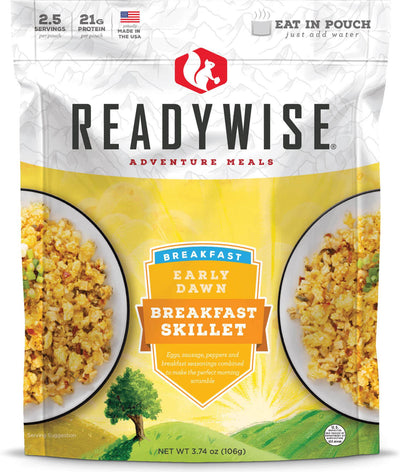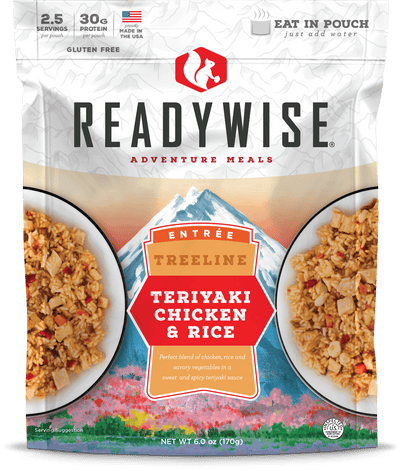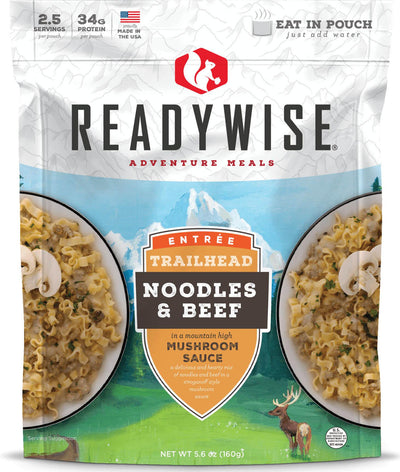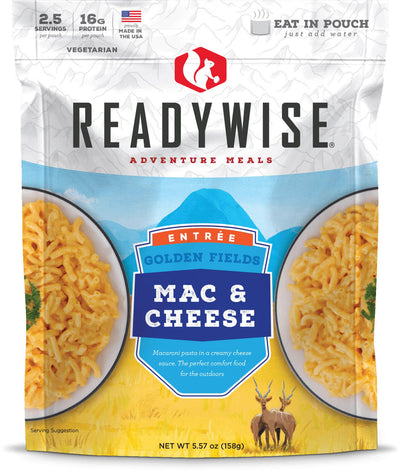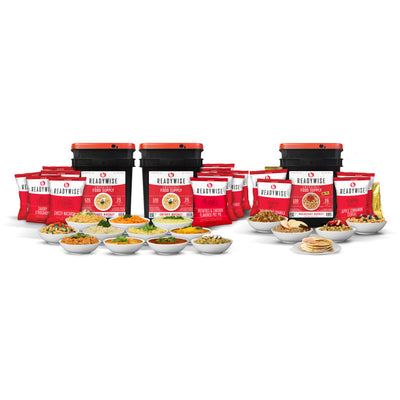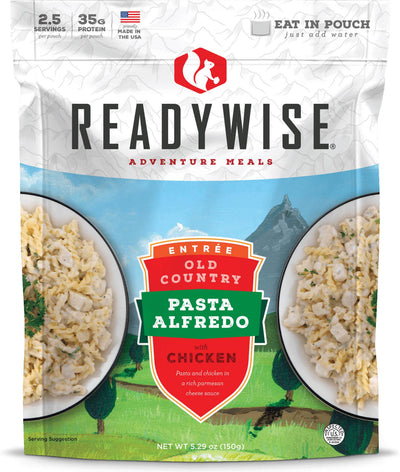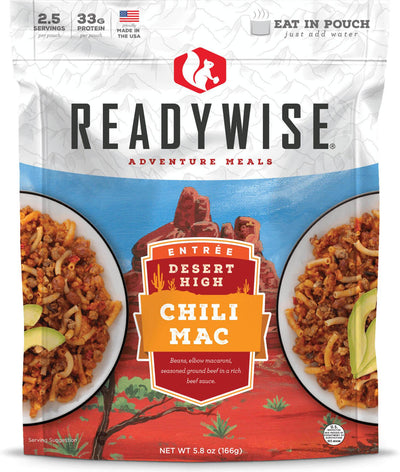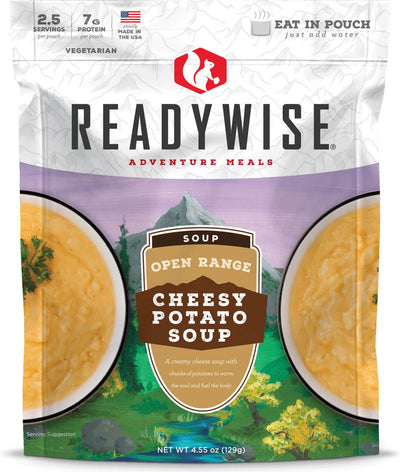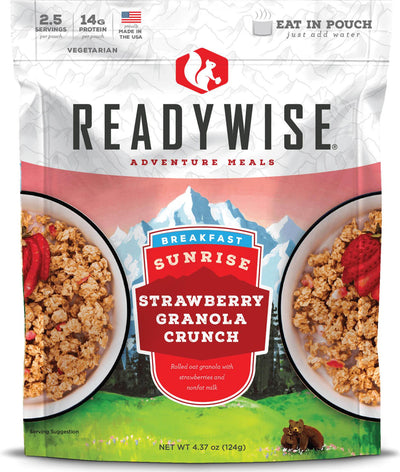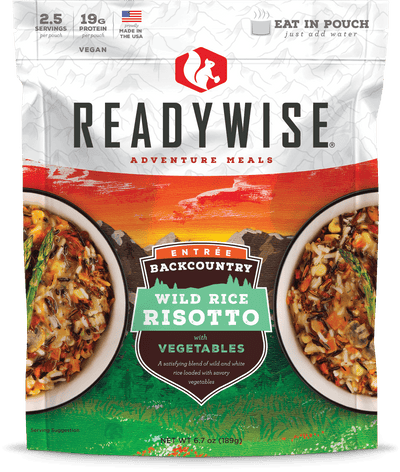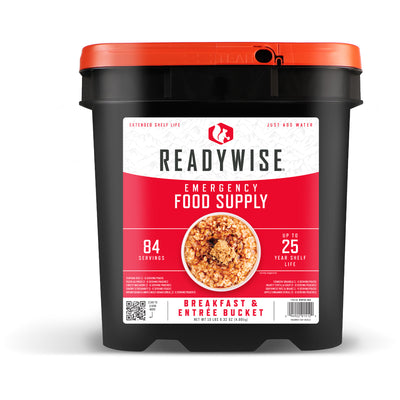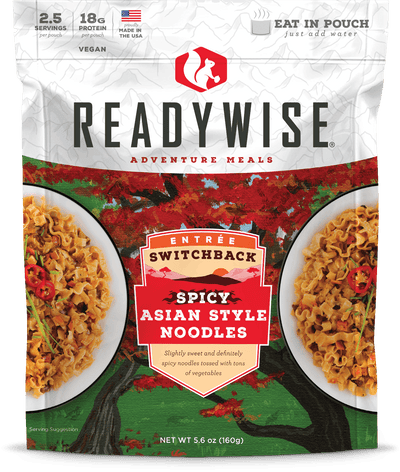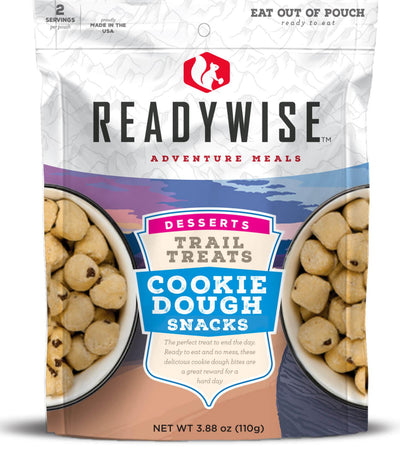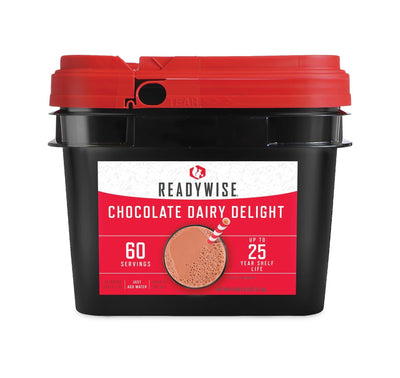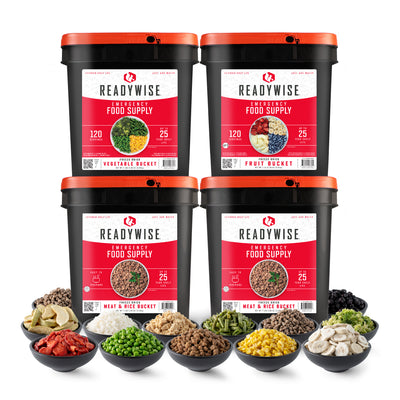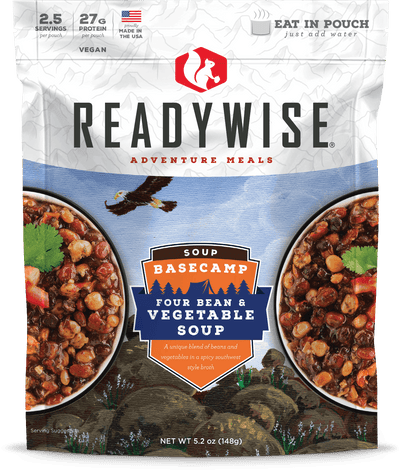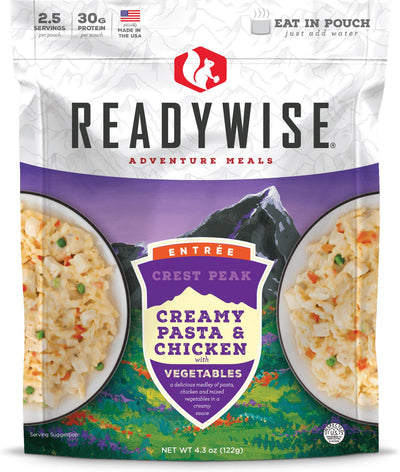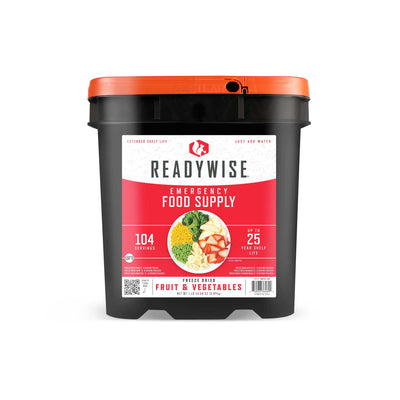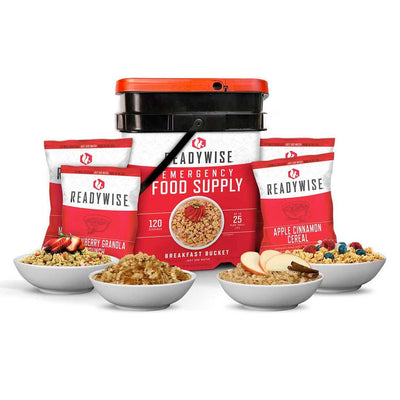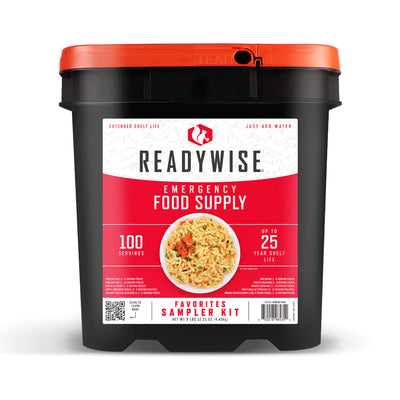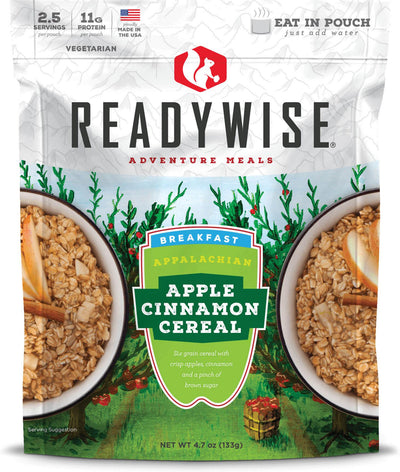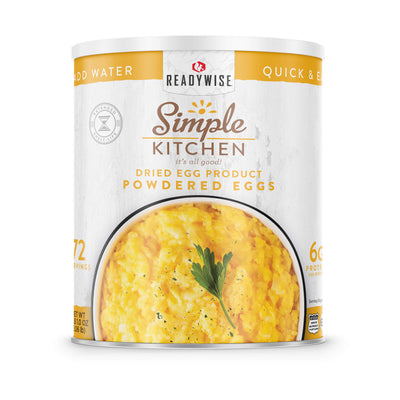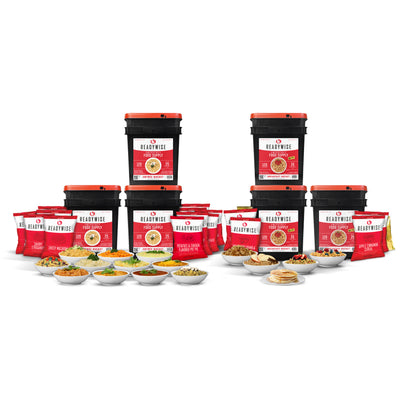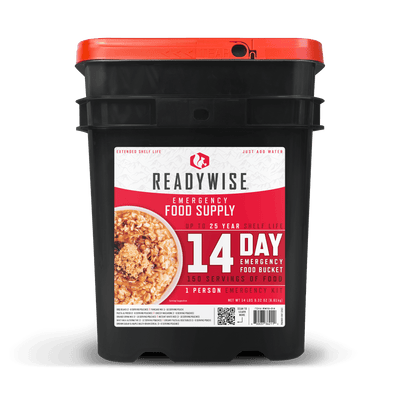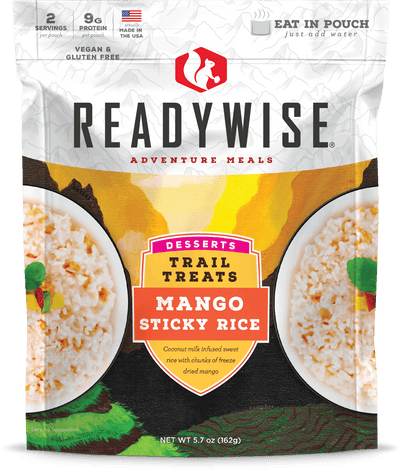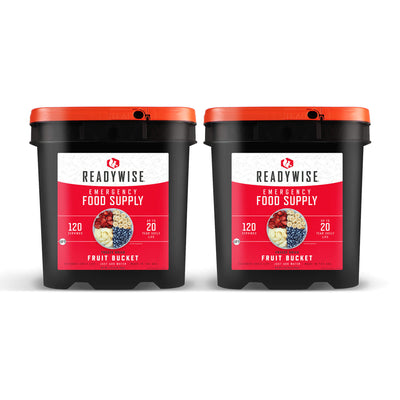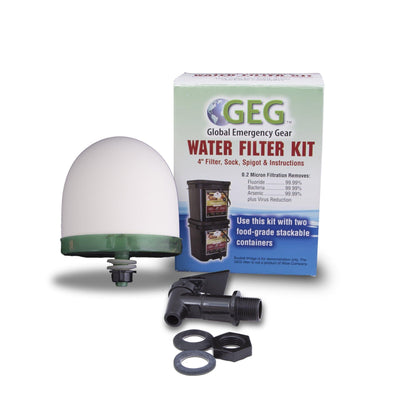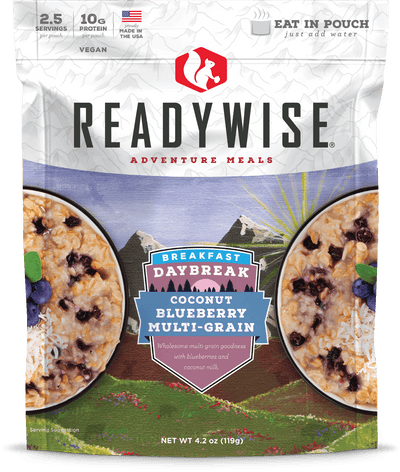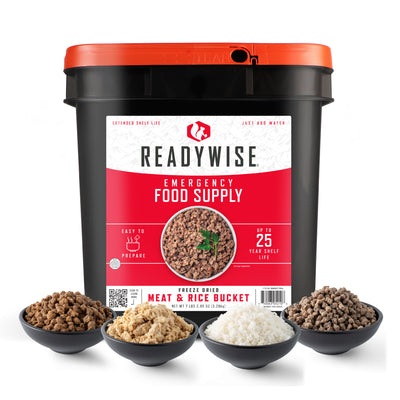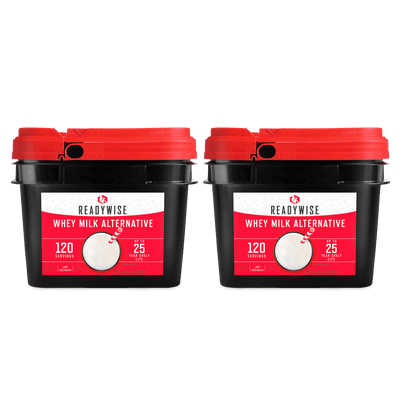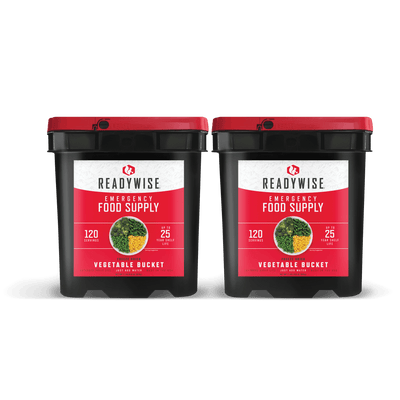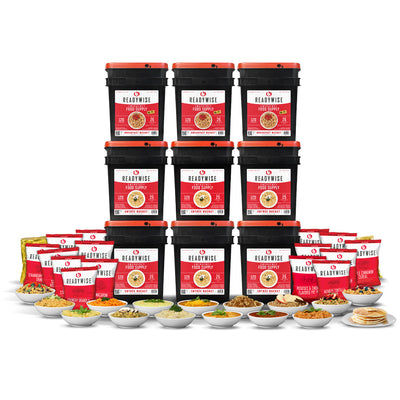In emergency situations when food is scarce and every calorie counts, knowing your daily calorie needs is essential for survival and long-term health. If disaster strikes—whether from a catastrophic power outage, natural disaster, or other crisis—ensuring that your body gets enough energy can mean the difference between staying strong and succumbing to fatigue or worse. This guide explains how to determine your daily calorie needs, offers insight into how ReadyWise meals can support you in emergencies, and provides actionable tips for planning effective emergency supplies.
How to Determine Your Daily Caloric Needs
Accurate calorie tracking is a cornerstone of emergency preparedness. By knowing how many calories you need, you can design an emergency food supply that fuels your body, supports vital functions, and helps you stay resilient when resources are scarce.
Key Factors That Affect Caloric Requirements
Your daily calorie requirements vary based on several factors such as age, gender, activity level, and overall health. For example, younger individuals or those engaging in physically demanding tasks burn more calories than older or sedentary individuals. Stress and increased physical exertion during emergencies may also alter your energy needs.
Basal Metabolic Rate (BMR) and Energy Needs
Your Basal Metabolic Rate (BMR) is the minimum number of calories required for your body to perform basic functions—breathing, circulating blood, and regulating body temperature—while at rest.2 BMR can account for a significant portion of your daily calorie expenditure, sometimes as much as 60-75%. By understanding your BMR, you gain insight into the baseline energy your body requires to sustain life, which is critical in emergencies when every calorie matters.
Survival vs. Optimal Caloric Intake
It’s important to distinguish between the minimum calories needed merely to survive and the optimal intake necessary to maintain strength, cognitive function, and overall health. While you might survive on a very low calorie intake, doing so over an extended period can lead to muscle loss, fatigue, and a weakened immune system. In crisis situations, consuming enough calories to support metabolic function and bodily repair is crucial to not only survive but to retain your ability to respond and recover.3
How Many Calories Are in ReadyWise Meals?
When planning your emergency food supply, ReadyWise meals provide a practical, nutritionally balanced solution. Their products are carefully designed to offer a consistent number of calories per serving, ensuring that even in the absence of fresh food, your body receives the energy it needs.
ReadyWise Food Buckets: Calories Per Meal Breakdown
ReadyWise emergency food supply kits offer meals with clearly defined calorie counts. For example, if each meal is engineered to provide around 500 calories, you can easily calculate your daily intake. This transparency makes it straightforward to plan your calorie consumption, ensuring that you meet your energy needs during an emergency.
Nutritional Value of ReadyWise Meals
ReadyWise meals are not just about calories—they also offer a balanced mix of carbohydrates, proteins, and fats. This nutritional balance is key to maintaining metabolic function and overall energy, especially during stressful periods. By including a comprehensive range of macronutrients, these meals help sustain muscle mass, support your immune system, and provide the energy necessary to handle physical exertion during crises.
Meeting Daily Energy Needs with ReadyWise
Depending on your individual requirements, you can determine how many ReadyWise meals you need per day. For instance, if your body needs roughly 2,000 calories daily and each meal delivers about 500 calories, you would require approximately four meals to meet your needs. This straightforward calculation allows you to tailor your emergency food supply to your specific energy requirements, ensuring that even in a crisis, you have the resources to function effectively.
Why ReadyWise Meals Are Ideal for Food Scarcity Situations
In times of emergency, when fresh food is limited or unavailable, ReadyWise meals offer a reliable, long-lasting, and nutritious alternative. Their design is optimized for emergencies, with a focus on convenience, balanced nutrition, and ease of use.
Long Shelf Life and Easy Storage
One of the most important features of ReadyWise meals is their long shelf life. Thanks to advanced preservation methods like vacuum sealing, these freeze-dried foods can be stored for years without losing their nutritional value or taste. This makes them an essential part of any emergency survival kit, providing a dependable source of calories and nutrients during prolonged crises.
Quick and Simple Preparation
When disaster strikes, every minute counts. ReadyWise meals are designed for simple and rapid preparation—just add hot water, wait a few minutes, and your meal is ready. This ease of use is critical during power outages or other emergencies where conventional cooking methods aren’t available. The straightforward preparation process means you can focus on other critical tasks while ensuring that your body receives the energy it needs.
Sustaining Energy and Health During Emergencies
In emergency scenarios, balanced nutrition is key. ReadyWise meals deliver the right balance of calories and essential nutrients to support metabolic function and sustain energy levels. This helps maintain physical strength, cognitive function, and overall health, even when you’re relying solely on your emergency food supply.
How to Plan Your Emergency Food Supply with ReadyWise
Effective emergency preparedness requires thoughtful planning and organization of your food resources. Here are some practical steps to ensure that you have a robust and sustainable emergency food supply using ReadyWise products.
Calculating the Right Amount of Food for Your Household
Start by estimating the daily calorie needs for each household member, factoring in age, activity level, and overall health.1 With these figures, you can calculate the total number of ReadyWise meals required to sustain your family during an extended crisis. This calculation ensures that your food supply is adequate, no matter how long the emergency lasts.
Customizing Your Emergency Food Storage Plan
Every household has unique dietary requirements. Whether you need more protein, lower sugar intake, or a balanced mix of macronutrients, ReadyWise offers a range of options that can be tailored to your specific needs. Customizing your food plan guarantees that your emergency supply not only meets your calorie requirements but also supports long-term health.
Maintaining and Rotating Your Emergency Food Supply
Regularly inspect and rotate your food supply to ensure that your meals remain fresh and nutritionally viable. Adhering to best practices in food storage helps prevent spoilage and waste, ensuring that your emergency supplies are always ready when needed.4
Stay Prepared with the Right Calories and Nutrition
Understanding your body’s energy needs and planning accordingly is crucial for both everyday well-being and emergency preparedness. ReadyWise meals provide a reliable, nutrient-dense option that supports your daily caloric intake and overall health, even when fresh food is not available. By incorporating these meals into your emergency survival kit, you can maintain energy, support metabolic function, and sustain your body through challenging times.
Sources:
- Livestrong. Approximately How Many Calories Do You Need To Survive? https://www.livestrong.com/article/300423-approximately-many-calories-survive/
- Cleveland Clinic. BMR (Basal Metabolic Rate): What It is and How to Calculate It. https://my.clevelandclinic.org/health/body/basal-metabolic-rate-bmr
- Mayo Clinic. Calorie Calculator. https://www.mayoclinic.org/healthy-lifestyle/weight-loss/in-depth/calorie-calculator/itt-20402304
- FEMA. Food Safety: A Recipe For National Preparedness. https://www.fema.gov/blog/food-safety-recipe-national-preparedness








